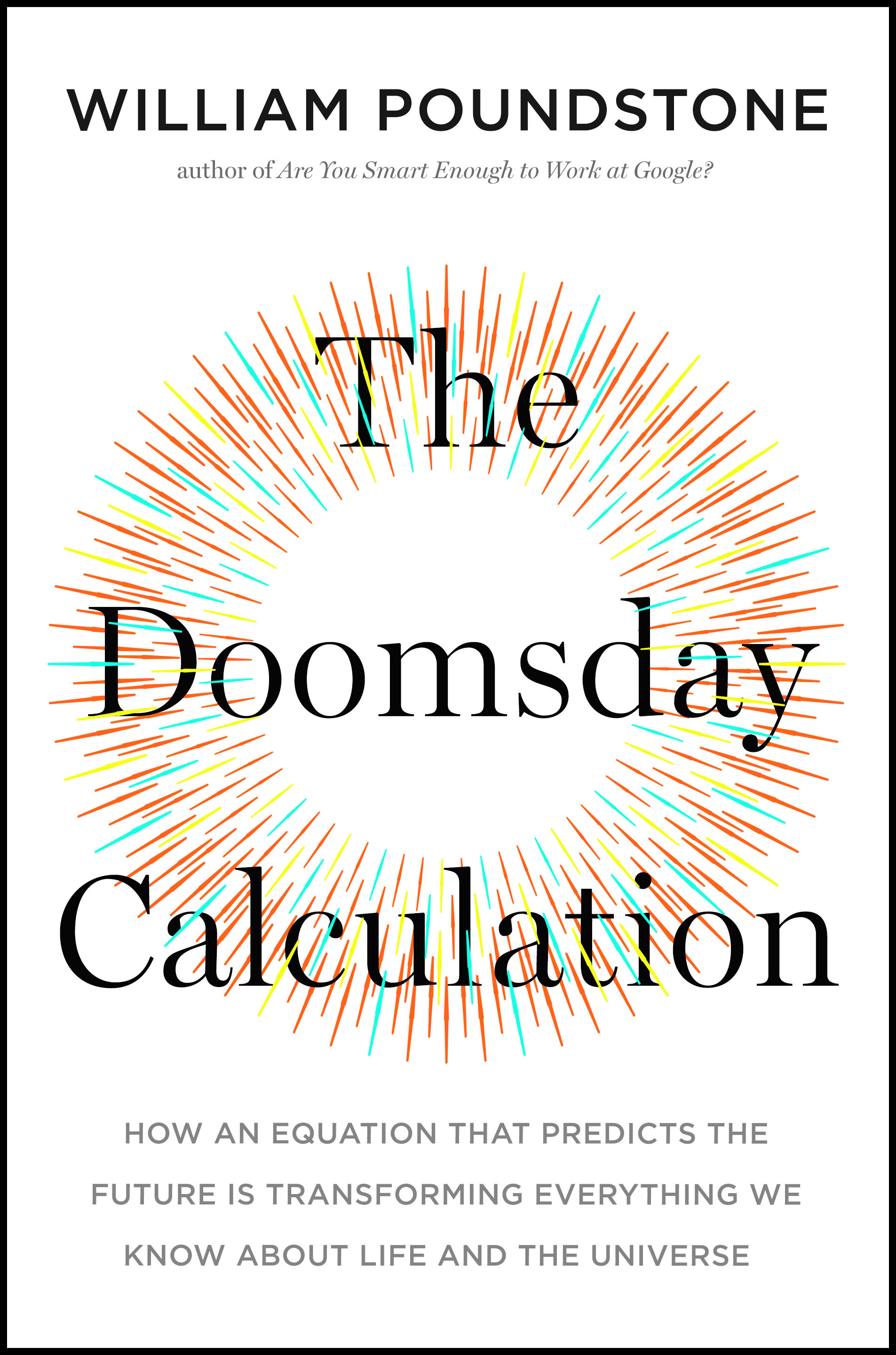I have found that a good way to write a popular science book is to find a topic on which many smart people disagree. That describes my new book coming out June 4. It’s called The Doomsday Calculation: How an Equation that Predicts the Future Is Transforming Everything We Know About Life and the Universe. In this post I’ll describe it by answering some of the questions I’ve gotten in the two-plus years I’ve been conceiving/researching/writing it.
Q. What is the “doomsday calculation”?
A. It’s a famous paradox, generally known as the doomsday argument (“calculation” seemed to make a catchier title, though). The doomsday argument says that we can use our current position in time to make a statistical prediction about how long humanity will survive into the future. It’s not some Nostradamus or Mayan calendar forecast with an exact day and time. It’s rather a probability distribution saying (for instance) that there is a 50 percent chance that humans will become extinct within the next 760 years.
Q. How is a prediction like that even possible?
A. The doomsday argument uses Bayesian probability and the notion of “self-sampling”—that I may regard myself as a random human out of all the humans who have or will exist. By examining the doomsday controversy, I touch on deep questions about the nature of evidence and probability.
The doomsday argument has been advanced by astrophysicists J. Richard Gott III, Brandon Carter, and Holger Bech Nielsen, and philosopher of science John Leslie. It’s also been attacked as a fallacy by an even larger group of no-less prominent names. The book is the story of an intellectual catfight—and an attempt to sort it out.
Q. Do you actually believe these doomsday predictions?
A. Like almost everyone else, I started out thinking the doomsday argument is completely nuts. That is, I saw it as a classic paradox, a seemingly logical argument that leads to a conclusion so absurd that there has to be an error. I now believe that there is no “error” in Gott’s version of the doomsday argument. Given its modest assumptions, its doomsday predictions are valid statements of probability.
One point I make in the book is that doomsday predictions are not actually that shocking. Anyone who thinks seriously about the risks of nuclear war, bioterrorism, climate change, and AI may feel that even odds on surviving another 760 years is pretty good!
Q. Sounds kind of dark?
A. Not really. The book was a lot of fun to research and write, and I think that comes through. This is an idea that potentially has many applications other than predicting the end of the world. Gott has used doomsday math to predict the runs of Broadway plays, the fall of the Berlin Wall, and the ends of celebrity marriages. It can also be used to address cosmic mysteries: Why haven’t we found signs of extraterrestrial intelligence? Are we living in the real world or a Matrix simulation? Is this world all there is, or is it part of a multiverse? These are perhaps the most significant applications of the idea. Finally, it should be mentioned that Google, Instagram, Facebook, and Twitter use similar (Bayesian) methods to predict what users what users will click on, buy, or vote for. The doomsday argument is not just a philosophic conundrum. We’re living in a doomsday world.
